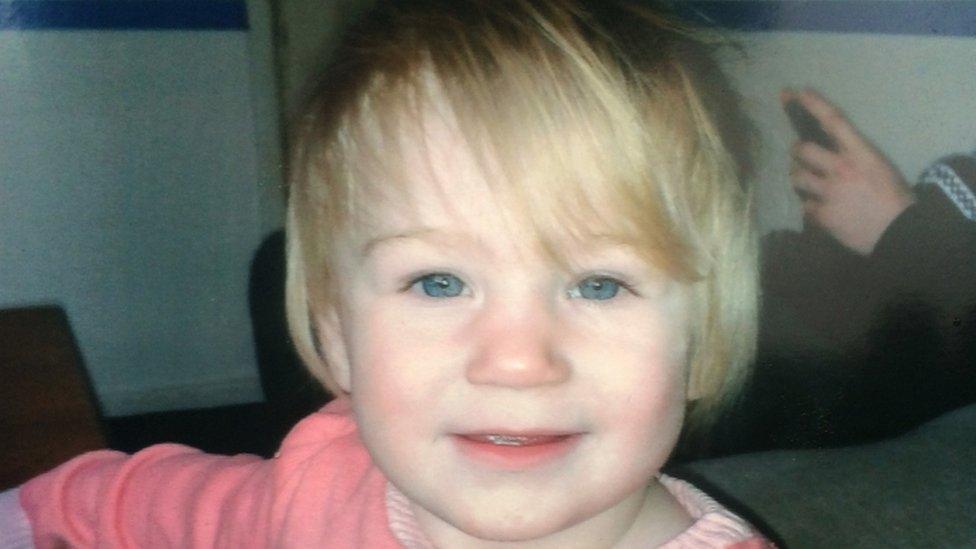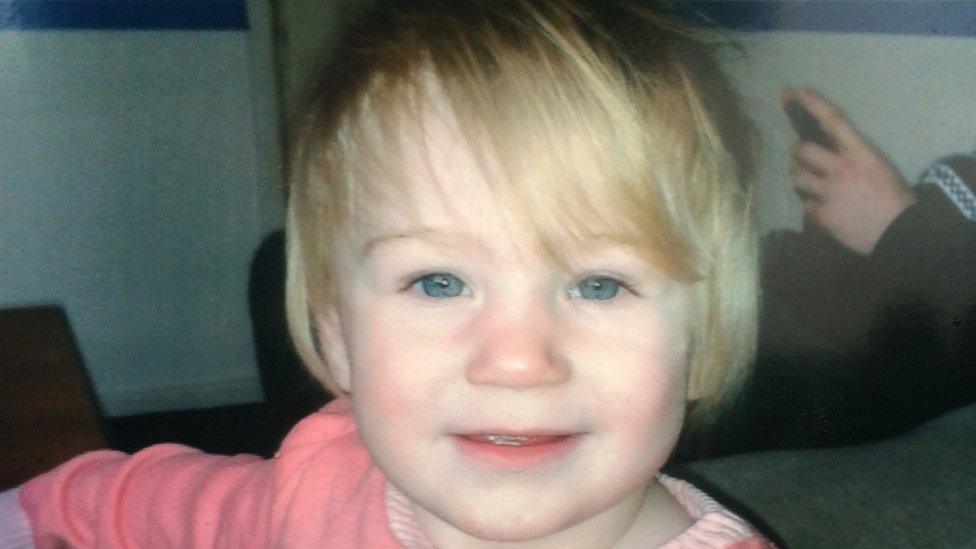Ayeeshia Jane Smith murder: Kathryn Smith challenges conviction
- Published

Kathryn Smith was described by a judge as a "devious, manipulative and selfish young woman"
A woman who stamped her 21-month-old daughter to death has launched an appeal against her murder conviction.
Kathryn Smith, 23, killed Ayeeshia Jane Smith during a "savage outburst" in the girl's bedroom in Burton-upon-Trent, Staffordshire, in 2014.
But her lawyers told the Court of Appeal her conviction was "unsafe".
John Butterfield QC said an interruption by the trial judge as he made his closing speech caused "prejudice" in the minds of jurors.

Ayeeshia Jane Smith died from a tear to the heart in May 2014
Smith, from Overseal, Derbyshire, was ordered to serve at least 24 years behind bars, while her former partner Matthew Rigby, from Nottingham, was jailed for three-and-a-half years for causing or allowing Ayeeshia's death.
Ayeeshia's heart had ripped due to the force of a fatal blow - a type of injury usually only found in car crash victims.
She had also suffered many other injuries, including a bleed on the brain, in the months before she was killed.
Mr Butterfield, who represented Smith during her trial at Birmingham Crown Court, said Mrs Justice Andrews' intervention had the effect of painting him as someone who was "sly enough" to make points he should not have been making.

Smith and Matthew Rigby repeatedly denied having anything to do with the little girl's death
"It is hard to understate just how devastating this was to the credibility of the defence case," he said. "To trespass on the closing remarks at all was a risk and was likely to have consequences.
"But to trespass on them to the extent and degree that was done here was dramatic and it cannot be said that the conviction is safe, I'm afraid, because of these matters."
Christopher Hotten QC, who acted for the prosecution at trial, argued the judge's interruption did not render the conviction unsafe and urged the Appeal Court judges to uphold it.
A judgement on the conviction will be handed down at a later date.
- Published16 May 2016

- Published11 April 2016

- Published8 April 2016
